The Path to Choosing a Special Major
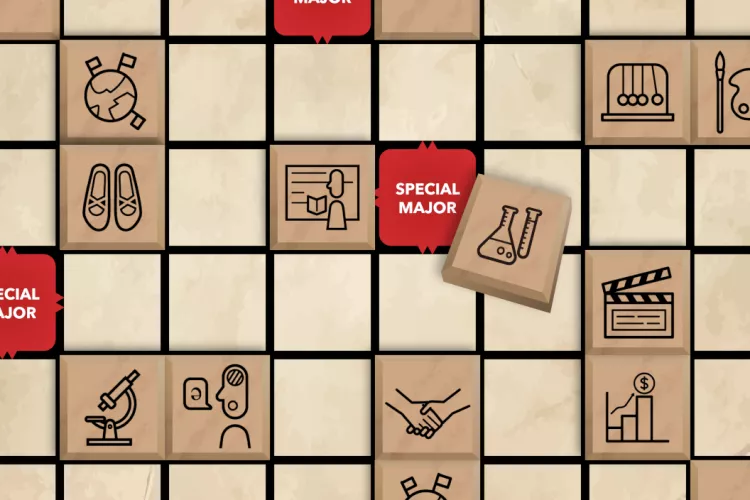
Illustration by Minwoo Han '25
Rachel Isaacs-Falbel ’19 is glad that she created a special major in dance and anthropology for many reasons — not least that it’s a great conversation starter.
“I pretty much have to explain what I studied to every person I meet,” the aspiring arts administrator says with a laugh.
“More than anything,” she says, “people are just surprised that my major even exists.”
That’s not the case at Swarthmore, where special majors — majors beyond those traditionally offered by the academic departments — abound. Over the past five years, 336 students either designed their own major or followed existing guidelines for one, ranging from astrophysics to sustainable communities, medical anthropology to fantasy art.
If you’re passionate about a subject, you can pursue it. And although taking a special major may feel intrinsically DIY, there are rich resources available to students.
“At Swarthmore, we have some of the most passionate faculty, who are genuinely really excited when the students are excited about something,” says Sierra Mondragón ’21, who studied Indigenous studies and history. “I think that’s really special.”
Below, four current students and three recent alums reflect on their experiences with a special major: how they arrived at it, what they hoped to do with it, and what they liked most about it, as well as what advice they have for anyone who might be considering one.
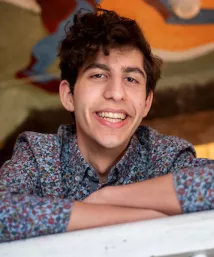
I was set on pursuing musical theater composition as a vehicle for social change. But I quickly learned that you can’t get quite more niche than that and dived headfirst into the liberal arts ethos: courses in music theory, theater history, an introduction to educational studies, and a peace & conflict studies course regarding my homeland of Palestine. Oh, and of course, chorus and tap dance!
I found each to support my creative practice and endeavors in their own distinct way. But I wondered how I would ultimately meld these into a cohesive academic program. Then I learned about special majors: these unicorn-like Swarthmore students who build their own specified courses of study fusing two or more departments.
By the end of my second semester, I had begun discussions with my adviser [Assistant Professor of Design] Laila Swanson and other incredible theater faculty members. Not long after, I extended my proposal to faculty in the music department, all of whom I am so incredibly grateful to for helping make this honors special major a reality.
What has excited me most about my course of study is that the Honors Program and the music and theater departments will be supporting the production of an original musical as my thesis in music and theater composition this spring.
As for my future post-Swat, I now have so many exciting options. After all, during my time at Swarthmore, I have had the opportunity to compose and produce original musical theater pieces, write and release standalone albums, record accompanying music videos for songs from those albums, perform those same songs live, score student-made films, write themes for video games, and devise musical standup comedy sets, just to name a few.
My advice to anyone is to start talking about and making plans for a special major as soon as possible.
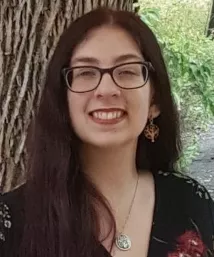
I had a plan when I first came to Swarthmore because I had participated in a few summer programs focused on international relations. I knew that students could do special majors, and I thought I would go through the Political Science Department.
I took the Introduction to Global Studies course first semester freshman year, and really enjoyed it. From then on I spoke with the chair of the program, [Associate Professor of French] Carina Yervasi, about potentially majoring in global studies. I realized that gave me more flexibility to study the things I wanted to transnationally.
I received a lot of wonderful help from [Yervasi and other faculty] in crafting my special major. They helped me choose classes and schedule around my Japanese minor, which is really time-intensive.
My goal is to get a Ph.D., and I hope to enroll in a graduate program centered around global studies with an Indigenous studies focus.
I love the special major program because it can be tailored to exactly what you want to study. For me, I focus on how Indigenous people and culture interact on a global scale, and my major allows me to best choose the classes that cater to that topic. However, I would definitely advise finding a faculty member who can assist you, once you have a clear picture in your head of what you want to study.
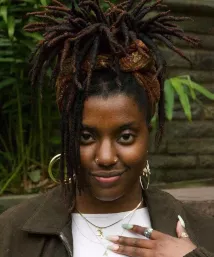
I knew from early on I wanted to center my academic journey in understanding the violent ways in which our world is socially, politically, and ontologically constructed — so that I could have as many tools in my arsenal to be a part of the collective who continues to destroy it, brick by brick. So I became a Black studies special major.
I owe so much of my academic journey to [Associate Professor of Sociology] Nina Johnson. I couldn’t have developed my own personal academic and intellectual journey the way I’ve been going without such a phenomenal thinker, comrade, and friend in my corner. I also can’t help but mention the Black studies students who have come and gone before me — having such a nurturing collective has given me so much self-assurance and conviction.
I’d like to use my degree to embolden Black communities and collectives doing on-the-ground work to secure safety for their circles in the short term, while working towards disarming violent institutions altogether in the long term. Black people living through their realities know what they need to thrive, and I’d like to be a person with the resources to support them on their journeys of self-determination.
If a student is considering a special major, I would encourage them to lean into that desire. What moves them in this world? What are they enraged about? What gives them joy? Asking those questions lends itself to a journey that may reveal answers, but may also reveal more questions. Don’t be afraid to ask those questions. That’s what we’re here to do, isn’t it?
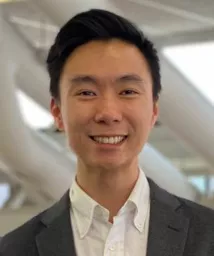
As a first-generation college student, I chose to embrace the first semester's pass/fail and try as many different disciplines as possible. From philosophy to computer science, I realized I had many interests that did not align with any specific department's major requirements.
At Swarthmore, you’re often surrounded by very passionate people who found their interests aligned in a department. However, I was still struggling to find what that was and took the question, what would I want to “learn for the sake of learning”? Born in North Philly in a stubbornly proud Shanghainese family, I was deeply interested in city life and its environments. I asked around and learned that [Associate Professor of Anthropology] Farha Ghannam specialized in urban anthropology and ethnography. At the end of my freshman year, I sent her an email, sharing that I was interested in cities and potentially creating a special major. The rest was history.
While the logistics of a special major approval were self-guided, my academic inquiries were supported by Farha. We had many office hours where we discussed topics — from urban mobility to socioeconomic conditions in the city — that I could explore through the different courses I took.
My goal was to become an urban planner and researcher to understand how to create more sustainable, equitable cities. After graduation, I moved to Washington, D.C., and worked for the Urban Land Institute. Eventually, I completed a Fulbright in Singapore on urban mobility and completed a master’s in urban planning at Harvard Graduate School of Design. I’m now working at LinkedIn, where I support research efforts on the future of work.
My advice is to find an adviser that has the time and attention necessary to support you throughout your special major journey … [someone] who will foster your intellectual curiosity and challenge your inquiries.
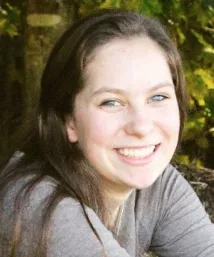
I always knew I wanted to do arts administration. I met the faculty of the dance department, and remember going to [Assistant Professor of Dance] Olivia Sabee at the beginning of sophomore year. She was the first person who suggested dance and anthropology and offered to work together on it. That wasn’t something that had even occurred to me as a possibility. I just finished my master’s in dance studies through the University of Paris and have started applying for jobs in arts administration. That career goal never changed; it was just about how I would get there.
I would definitely encourage students to consider a special major. It was a great way to do all the things that I was interested in. I had a very specific research goal in mind and crafted my special major to write a specific thesis and do specific research.
My broader advice is to always be open. Explore. Take as many different things as you can your first year, and just sort of let things happen.
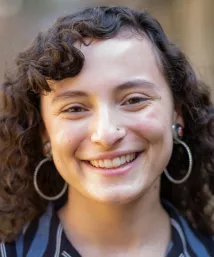
I knew I wanted to study English but wasn’t sure about history, because I had kind of a love/hate relationship with it in high school. But after I took my first class with [Professor of History] Bruce Dorsey, I immediately loved it. That class and my first class with [Associate Professor of English] Rachel Buurma made it clear I wanted to do those two things in some capacity. Later, [Professor of English Literature] Nora Johnson reached out to me and asked if I had considered a special major. I wasn’t sure, but once I saw I could continue with the line of research I was already doing, focused on Indigenous studies, I realized I really wanted to do it. It gave a name to something I had already been working so hard on.
My family on my father’s side is Native American, from Nambé Pueblo in New Mexico. And when I got to Swarthmore, I think I was just naturally searching for spaces where I could see myself and see my family and my communities represented. We have a lot of wonderful professors at Swat, but [at the time] none who specialized in Indigenous literature or history. It was something that I kind of took up on my own. And the faculty were really encouraging and supportive of me doing that type of work.
I think it was partly me looking for myself, but also my communities and my family and wanting to see them represented in what I was learning, and kind of navigating my way through classes with that goal in mind. My experience at Swat made me want to go to grad school to become a professor so that I could teach these types of histories and narratives where they weren’t being taught. I did independent research for my honors history thesis, and through that worked with two Indigenous organizations in New Mexico. I conducted interviews and did a lot of archival work. I’m working with one of them, Tewa Women United, as an executive assistant while applying to grad school.
The great thing about a special major is it really allows a student to kind of take charge of their education and what their interests are. Find something that you’re really passionate about, maybe something that Swarthmore doesn’t have yet.
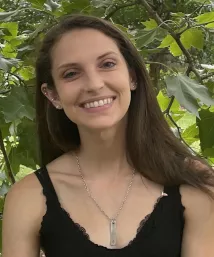
I felt that a bio education special major was the perfect fit to combine my love of education with my love of bio (and my premed aspirations).
I chose bio education because I wanted to pursue this special major and then, upon taking both education and biology classes, knew that this was the right choice for me.
I had support from both the biology and education department about what courses I needed to take to fulfill my degree requirements. [Associate Professor of Educational Studies] Diane Anderson was especially helpful in clarifying any confusion during the initial stages.
I’ve been accepted to Sidney Kimmel Medical College (SKMC) in Philadelphia (affiliated with Thomas Jefferson University Hospital) through the early admission program/partnership between SKMC and Swarthmore, and will be pursuing a medical degree. I hope to perhaps specialize in either pediatrics or substance abuse treatment.
I would definitely recommend this path because it allows for so much more flexibility. If I had only declared biology as my major, I wouldn’t have had time to take as many education classes as I would have wanted to. Having both be a part of my major requirements freed up other time slots in my schedule so that I could take a more diverse array of classes.



